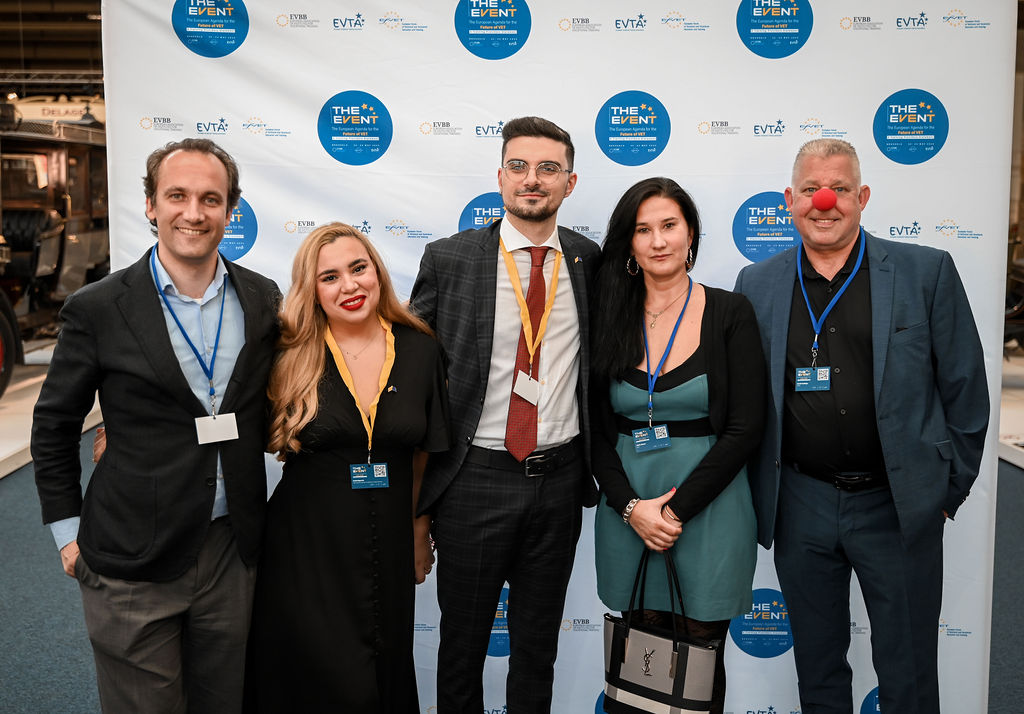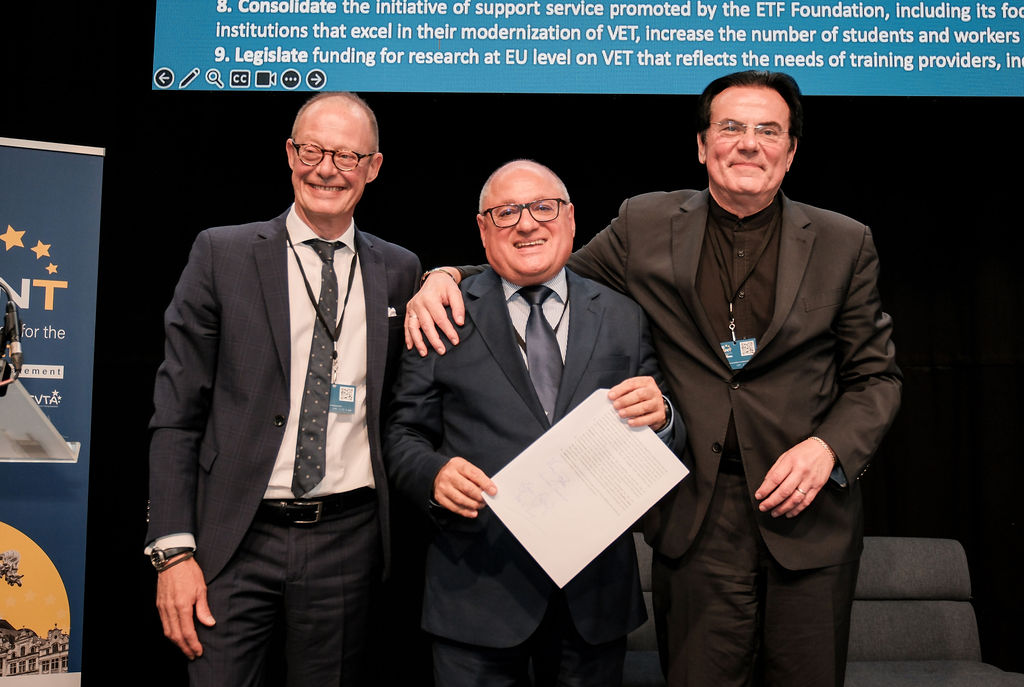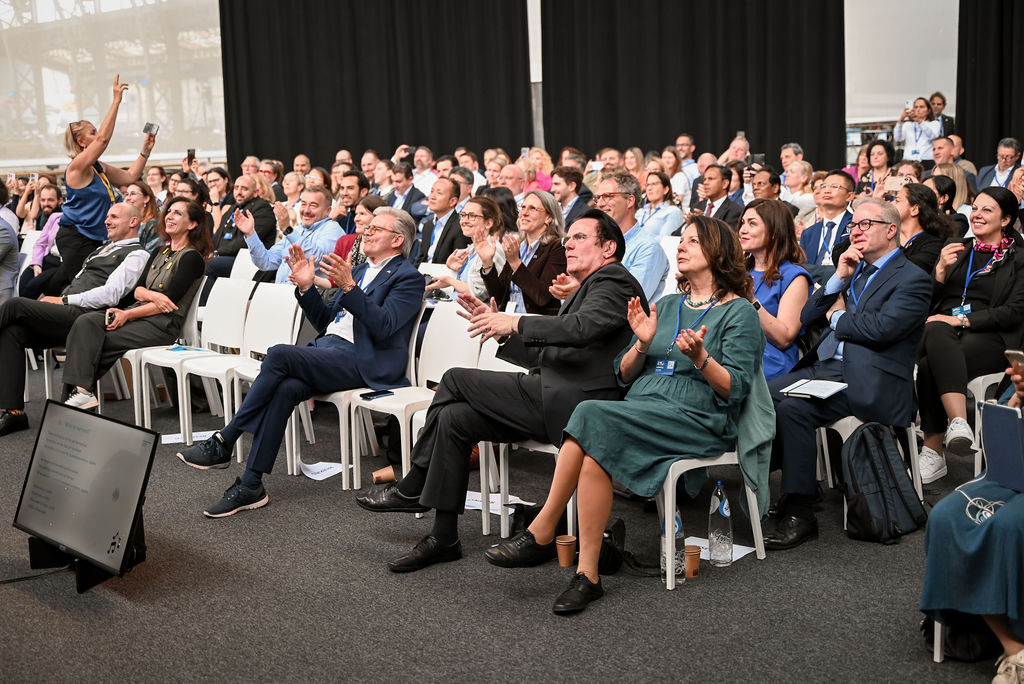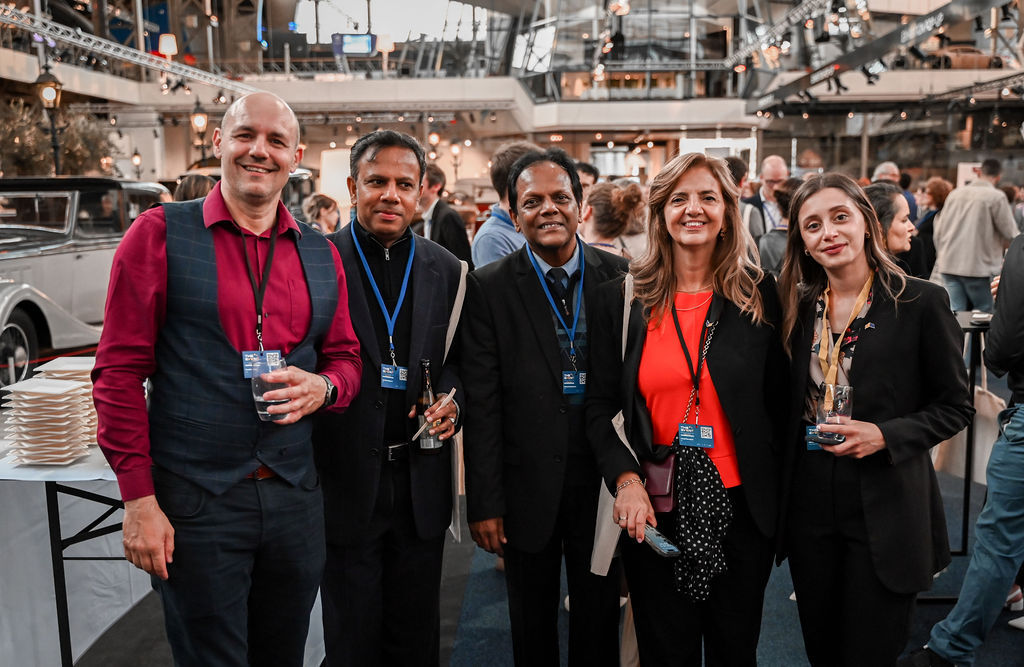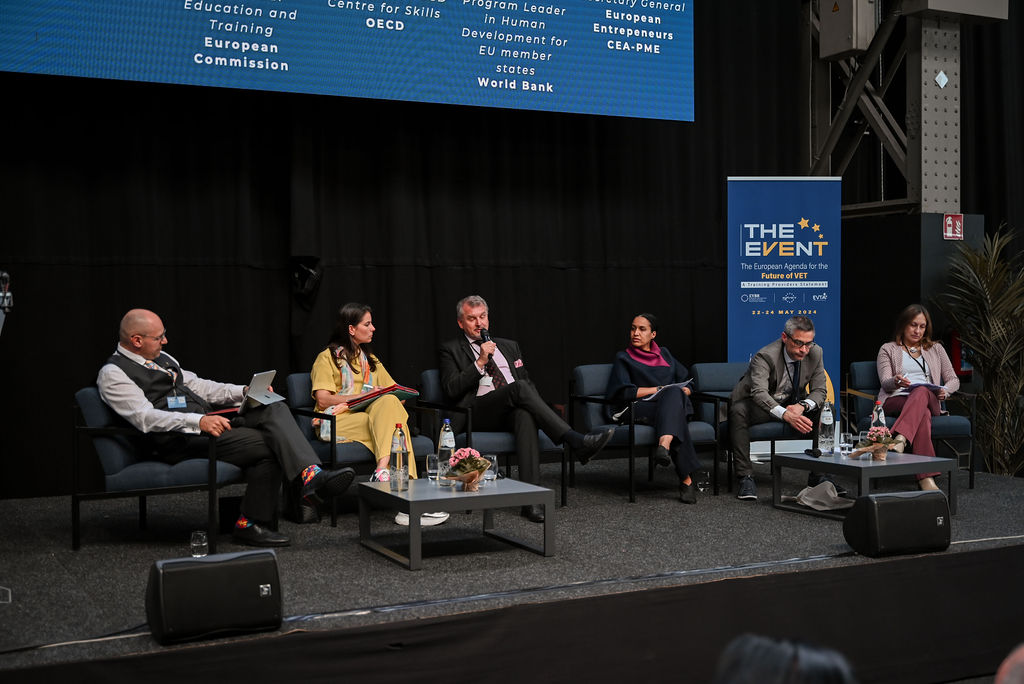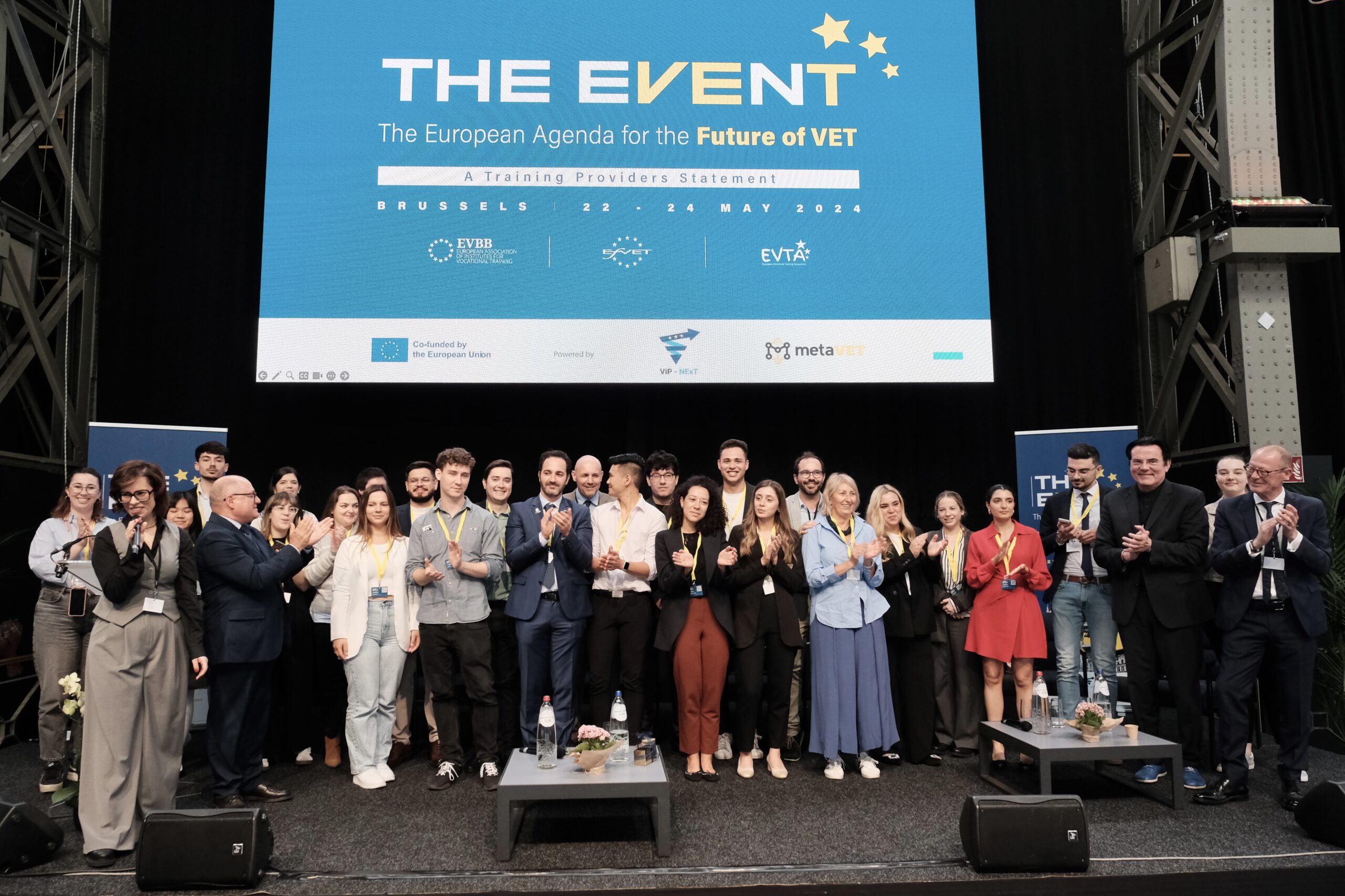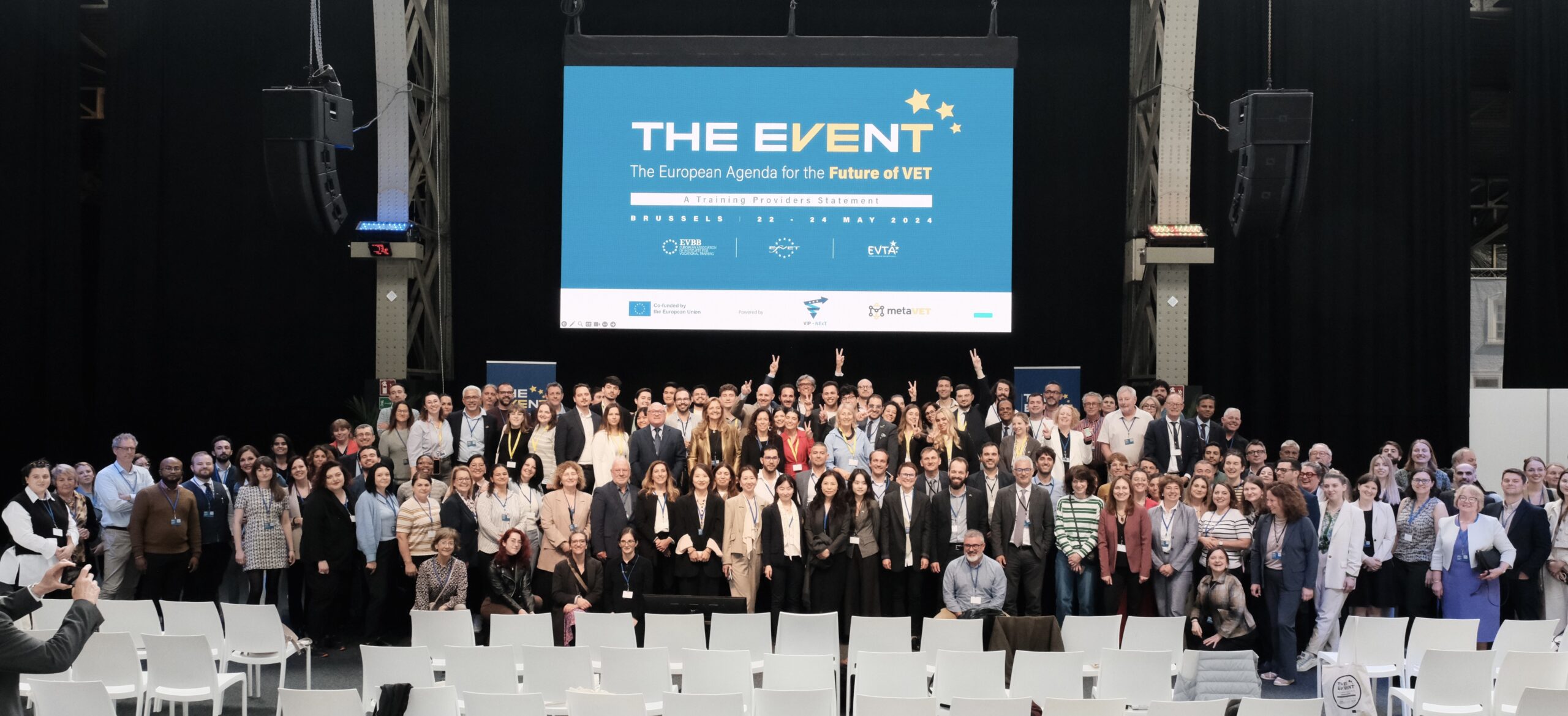Joining forces and voices for the growth and excellence of VET across Europe and beyond
For the inaugural event, three major European VET Networks united from May 22 to 24 to host VET providers, policymakers, and various industry stakeholders from Europe, Africa, and Asia at the Autoworld Museum in Brussels. Co-organized by the European Forum of Technical and Vocational Education and Training (EfVET), the European Association of Institutes of Vocational Training (EVBB), and the European Vocational Training Association (EVTA), this collaborative effort aimed to illuminate the pivotal role of VET in shaping Europe’s future. Recognizing its significant contribution to employability and the pursuit of ‘skills and competencies for a sustainable future,’ the event also addressed the imperative of reducing ‘cracks in social cohesion’ for a Sustainable Europe by 2050
Reflecting on the achievements of the Copenhagen Process in the past two decades – marked by growth, innovation, enhanced visibility, and increased enrolment by both young people and adults in vocational schools across Europe – it is evident that there’s still considerable ground to cover in addressing the challenges confront VET systems throughout the EU. Ensuring a more robust voice for VET Providers, students, and professionals within the sector remains paramount.
Hence the importance of THE EVENT, an initiative that gathered Commissioner Nicolas Schmit, experienced speakers, and more than 250 participants from 40 European and non-European countries to launch and celebrate, for the very first time, the European Day of Vocational Education and Training, and to launch the Manifesto for a Political Roadmap that Reinvents Technical Vocational Education and Training, where the following recommendations are made by the signatory European Training Providers to the prospective members of the European Parliament in support for a new era in VET:
1. Establish a stronger connection between VET and education in the Commission, under a wider umbrella of Lifelong Learning Area;
2. Increase considerably the funding for VET by creating a special EU fund;
3. Promote the opportunities for a global internationalization of the Erasmus+ program for VET;
4. Allocate the Copenhagen Process and the EQF Advisory Board to VET Colleges and Higher Education Institutions;
5. Ensure that training providers are actively engaged as stakeholders by the Commission in the formulation of relevant decision and full members of the governing Boards;
6. Incentivise European SMEs through funding schemes in countries where VET is underdeveloped;
7. Identify a transparent process for the recognition of both the role of mobility providers as supporting organisations;
8. Consolidate the initiative of support service promoted by the ETF Foundation, including its focus on the awarding of the EU Quality Label for VET for institutions that excel in their modernisation of VET;
9. Legislate funding for research at EU level on VET that reflects the needs of training providers, industry, and social partners.
After the success of THE EVENT, EfVET, EVBB and EVTA are now working for a concrete implementation of a Confederation to empower VET voice in the EU and beyond.
Vocational Training and Education should consistently cater to the diverse needs and interests of learners with professionalism.
